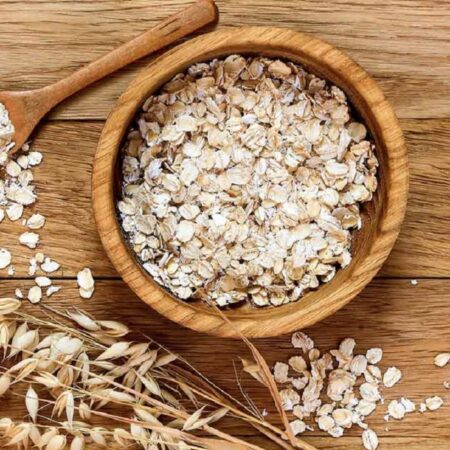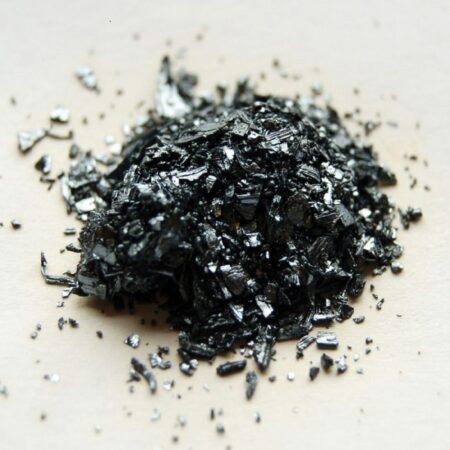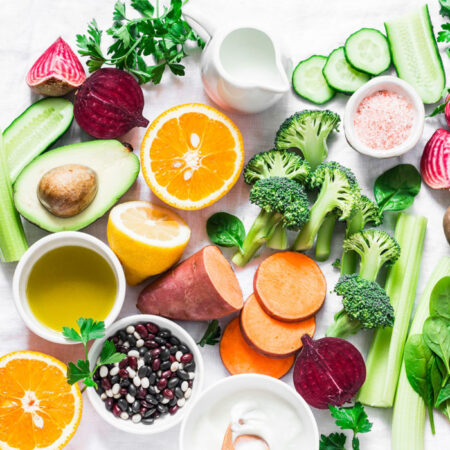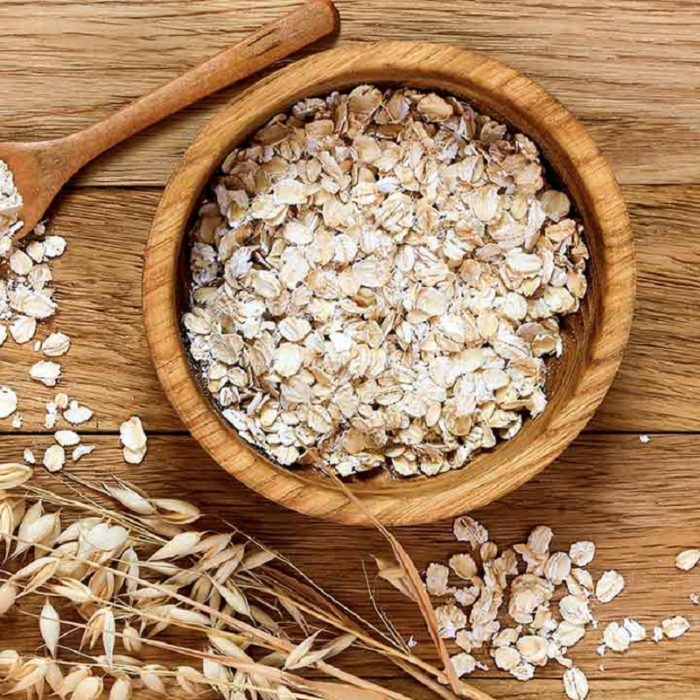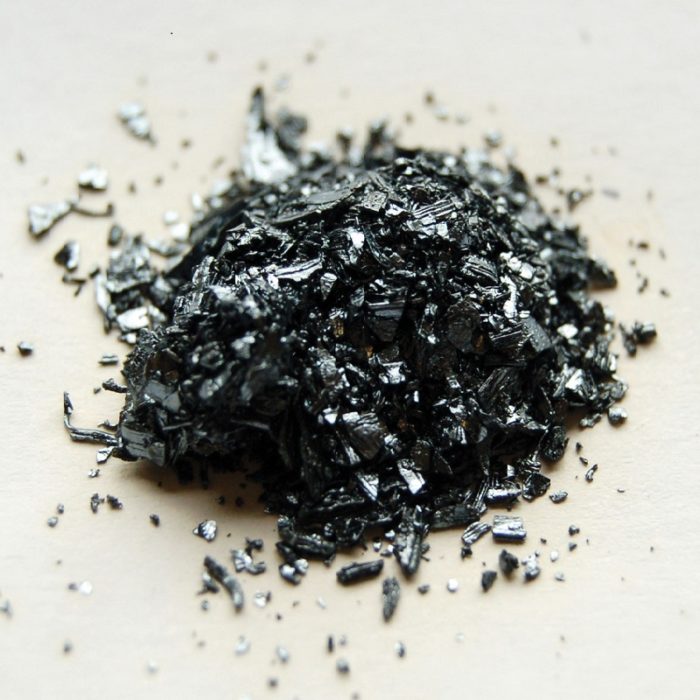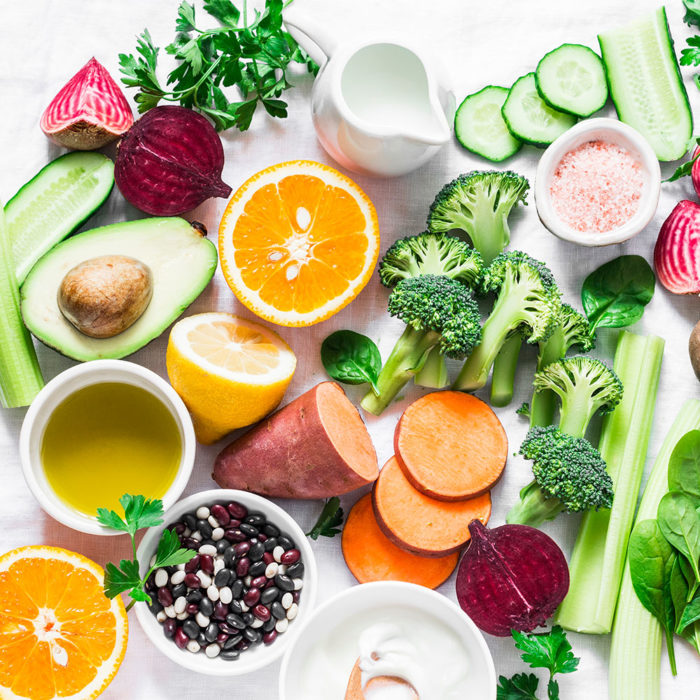Nutritional Benefits Of Carrot Juice For Vision, Skin, And Health
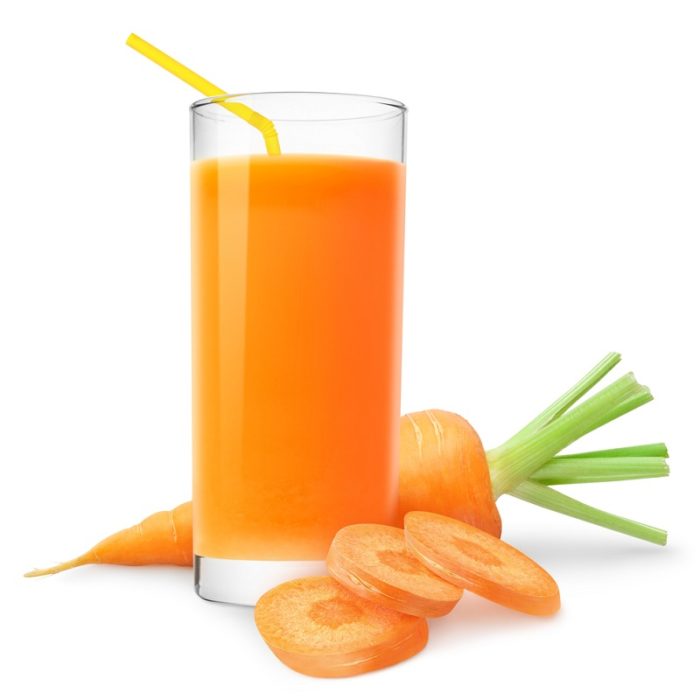
Carrots (Daucus carota) are nutrient-dense root vegetables with numerous health benefits. These crunchy, sweet, and tasty roots are rich in antioxidants, fiber, beta-carotene, vitamins, and minerals. These roots are available in orange, red, and yellow pigments.
Eating carrots doesn’t have to be the only way to enjoy the goodness of these nutrients. Juicing the veggies can be equally good. A large body of scientific evidence supports and promotes the regular intake of carrot juice for skin and vision health. It may also help promote weight loss and reduce cancer risk. In the following section, we will look into the benefits of carrot juice in detail.
What Makes Carrot Juice Healthy?
Consuming carrot juice increases your body’s antioxidant status (1).
Oral intake of carrot juice is also linked to reduced oxidative stress and inflammation. In a study, men who consumed carrot juice regularly had the lowest incidences of heart disease (1).
Carrot juice is also one of the most popular non-alcoholic beverages in many countries. It works very well when blended with other fruit or vegetable juices (2).
Carrot juice has an important nutritional profile. One of its major nutrients is beta-carotene, a source of vitamin A known for its health benefits (3).
The juice is also a rich source of potassium, vitamin C, and folate. There are other key nutrients the juice contains. But before we discuss them, let’s take a look at what science has to say about carrot juice.
What Are The Health Benefits Of Carrot Juice?
The beta-carotene in carrot juice is a powerful antioxidant. It may help reduce cancer risk and prevent heart complications. The fiber in the juice can lower blood glucose levels and may aid weight loss. The other important nutrients in the beverage may promote immunity and skin health.
1. May Enhance Vision
Vitamin A, in recommended quantities, is essential for good vision, and carrots offer the nutrient in abundance. If a person is deprived of vitamin A for too long, the outer segments of the eyes’ photoreceptors begin to deteriorate. Carrot juice contains lutein, a powerful antioxidant. Studies link it to a reduced risk of macular degeneration (4).
The carotenoids in the juice also protect the retinal ganglion cells, thereby preventing several eye diseases (5).
But be wary of excess intake of carrot juice. Some sources suggest that excess intake of carrots may affect the vision. In a study, poor night vision among women was linked to excess intake of vitamin A and beta-carotene (6). Hence, limit your consumption to the juice from one or two carrots a day.
2. May Promote Skin Health
Carrots are rich in carotenoids. Research suggests that fruits and vegetables rich in these compounds can offer photoprotective benefits. They also appear to contribute to normal human skin color (7).
The beta-carotene in the juice possesses healing properties. It scavenges free radicals and protects the skin’s tissues. The compound also has photoprotective properties (8).
3. May Promote Weight Loss
The fiber in carrot juice may aid weight loss. Research recommends adequate fiber intake to lose excess weight (especially from the abdomen) (9).
Carrot juice is also low in calories. Hence, it makes for a comfortable addition to a weight loss diet.
4. May Help Reduce Cancer Risk
According to a study published in Oncotarget, a high intake of carrot has been associated with a low incidence of urothelial cancer (10), (11). However, due to the limited number of studies conducted in this regard, we need further large well-designed studies to reconfirm these findings (12).
Extracts from carrots were also found to induce apoptosis and cause a cell cycle arrest in leukemia cell lines. Findings suggest that carrots (and possibly their juice) may be an excellent source of bioactive chemicals for aiding leukemia treatment (13).
5. May Promote Heart Health
Intake of fruit and vegetable juices, in general, can reduce heart disease risk. Drinking 16 fluid oz of carrot juice daily also suppresses oxidative degradation of lipids (also called lipid peroxidation), thereby cutting the risk of cardiovascular disease (1).
Carrot juice, and other juices in general, contain polyphenols and nitrates. These are other bioactive components in the juice that help regulate blood pressure levels (14).
In another study, both isolated beta-carotene and purple carrot juice had reversed endothelial dysfunction (the malfunctioning of the cells of the blood vessels) (14). This effect was also linked to the anthocyanins in the juice.
The juice from carrots may also reduce cholesterol levels. It achieves this by reducing the digestion and absorption of fats (15).
6. May Aid Diabetes Treatment
Carrot juice fermented with a particular bacterium (Lactobacillus plantarum NCU110) was found to relieve the symptoms of type 2 diabetes in rats (16). However, we do not know how well unfermented carrot juice works in this regard. Also, more studies in humans are needed to further understand the anti-diabetic potential of carrot juice.
The fiber in the juice could also help (ensure you do not drain it out while juicing). This fiber can make you feel full and discourage you from overeating. Thus, the juice may help individuals with diabetes prevent excess weight gain (17).
Carrots (and the juice, possibly) contain complex carbohydrates that could reduce blood glucose responses (18). The fiber they contain could contribute to this.
7. May Improve Brain Health
The beta-carotene in the juice also boosts cognition and cuts down the long-term risk of age-related memory problems. One reason is its ability to fight oxidative stress that can damage brain cells (19).
In a study, workers exposed to lead, when treated with beta-carotene, had lower levels of oxidative stress (20).
Oxidative stress in the brain can also cause cellular damage. The beta-carotene in carrot juice can prevent this damage (21).
The potassium in carrot juice can also cut the risk of stroke. A cup of carrot juice contains 689 milligrams of potassium, meeting over 17% of your daily requirement of the nutrient (22).
8. May Enhance Digestive Health
The fiber in the juice (and other fruit/vegetable juices in general) can promote regularity and boost digestive health (23). Carrot juice could be a good option for people (and children) with constipation.
The potassium in carrot juice may also help treat diarrhea. Carrot puree can also help in this regard. Diarrhea is a condition in which your body loses large amounts of fluids through stool. Replenishing it with foods rich in potassium could help (24).
Carrot juice also contains alkaline compounds that may help treat acid reflux and GERD. It could be one of those foods that do not trigger symptoms. The alkaline acids can neutralize the excess stomach acid that causes these symptoms. However, there is less research in this regard. Hence, consult your doctor before consuming carrot juice for this purpose.
In rat studies, ingestion of carrot juice was also found to enhance liver health by boosting the levels of healthy liver fats (25). But the research in this aspect is preliminary as there is no information on how effective the juice can be in lowering triglyceride levels.
9. May Boost Immunity
Increased plasma carotenoid concentration can boost the body’s immune system, as per a study.
The study conducted on healthy men focused on how carrot juice could increase plasma carotenoid concentrations, thereby enhancing their immunity levels (26). Supplementing their low-carotenoid diets with carrot juice made the difference.
Thanks to its immune-boosting properties, carrot juice can fight infections as well (27). These properties can be attributed to its beta-carotene, which is converted into vitamin A in the body (28).
10. May Be Beneficial During Pregnancy
Carrot juice is rich in various nutrients that are required for a healthy pregnancy. There is no direct research citing the benefits of carrot juice during pregnancy. Hence, we recommend you check with your doctor.
Carrot juice is replete with some of the essential nutrients. The following section will discuss that in detail.
What Is The Nutritional Profile Of Carrot Juice?
| CALORIE INFORMATION | ||
|---|---|---|
| Amounts Per Selected Serving | %DV | |
| Calories | 94.4 (395 kJ) | 5% |
| From Carbohydrate | 85.2 (357 kJ) | |
| From Fat | 3.0 (12.6 kJ) | |
| From Protein | 6.2 (26.0 kJ) | |
| From Alcohol | 0.0 (0.0 kJ) | |
| CARBOHYDRATES | ||
| Amounts Per Selected Serving | %DV | |
| Total Carbohydrate | 21.9 g | 7% |
| Dietary Fiber | 1.9 g | 8% |
| Starch | ~ | |
| Sugars | 9.2 g | |
| PROTEIN & AMINO ACIDS | ||
| Amounts Per Selected Serving | %DV | |
| Protein | 2.2 g | 4% |
| VITAMINS | ||
| Amounts Per Selected Serving | %DV | |
| Vitamin A | 45133 IU | 903% |
| Vitamin C | 20.1 mg | 33% |
| Vitamin D | ~ | ~ |
| Vitamin E (Alpha Tocopherol) | 2.7 mg | 14% |
| Vitamin K | 36.6 mcg | 46% |
| Thiamin | 0.2 mg | 14% |
| Riboflavin | 0.1 mg | 8% |
| Niacin | 0.9 mg | 5% |
| Vitamin B6 | 0.5 mg | 26% |
| Folate | 9.4 mcg | 2% |
| Vitamin B12 | 0.0 mcg | 0% |
| Pantothenic Acid | 0.5 mg | 5% |
| Choline | 23.4 mg | |
| Betaine | ~ | |
| MINERALS | ||
| Amounts Per Selected Serving | %DV | |
| Calcium | 56.6 mg | 6% |
| Iron | 1.1 mg | 6% |
| Magnesium | 33.0 mg | 8% |
| Phosphorus | 99.1 mg | 10% |
| Potassium | 689 mg | 20% |
| Sodium | 68.4 mg | 3% |
| Zinc | 0.4 mg | 3% |
| Copper | 0.1 mg | 5% |
| Manganese | 0.3 mg | 15% |
| Selenium | 1.4 mcg | 2% |
| Fluoride | ~ |
One cup (236 grams) of canned carrot juice contains 94 calories. It also contains 1.9 grams of fiber, 45133 IU of vitamin A, 20 milligrams of vitamin C, and 689 milligrams of potassium.
Source: USDA database
Carrot juice is a nutrition-heavy beverage. Having it every day can promote your overall health. But how do you make it?
How To Make Carrot Juice
Preparing carrot juice is simple and quick. You need one to two medium-sized carrots.
- Wash and chop the carrots and add them to a blender.
- Add some filtered water.
- You can add a few more chopped veggies if you want.
- Blend on medium speed until all the ingredients are pulverized.
- You can strain the juice into a new container through a nut milk bag.
- Your juice is ready. You can store the pulp (fiber) in the refrigerator and use it in your other preparations.
Alternately, you can allow the pulp to stay in the drink and eat your way through. You can also use carrots alone without adding other veggies. There are other ways you can include carrot juice in your diet:
- You can replace the stock in creamed vegetable soups with carrot juice.
- Replace the liquids in your baked goods with carrot juice.
- You can use carrot juice instead of chicken broth or plain water as a cooking medium. This method works especially well if you are cooking grains.
- Carrot juice also makes for a fat-free and tangy salad dressing.
- You can add the juice to other smoothies or juices to up their health quotient.
You might be wondering about the dosage. Carrot juice is exceptionally rich in vitamin A. The upper limit for vitamin A is 10,000 IU.
Taking preformed vitamin A, usually in the form of supplements, can be harmful if you exceed the recommended dose (29). Intake of carrot juice has not been found to cause such issues. However, check with your doctor. Knowing the dosage of carrot juice is important as taking it in excess may cause certain side effects.
What Are The Side Effects Of Carrot Juice?
- Vitamin A Toxicity
Though this toxicity most often is caused by excess intake of supplements, carrot juice may also be the culprit. One case discusses an individual ingesting 6 to 7 pounds of carrots a week. The individual later reported constipation and hypercarotenemia (harmless yellowing of the skin), indicating vitamin A toxicity (30).
Conclusion
Carrot juice is low in calories and offers certain important health benefits. Intake of the juice may improve vision health, reduce risk of cancer, boost the immune system, and regulate blood pressure and cholesterol levels. However, carrot juice may contain more sugar and less fiber when compared to raw carrots. Hence, you can consume the juice, but ensure you do not go overboard.
Also, be aware of the vitamin A toxicity. If you are already taking vitamin A supplements, please talk to your doctor. You may be advised to reduce the dosage.
Otherwise, carrot juice is a powerful way to boost your health with the right nutrients. Have it every day, and reap the benefits in the long run.
Expert’s Answers For Readers’ Questions
Q. Can we drink carrot juice on an empty stomach?
A. Yes, you can drink carrot juice on an empty stomach or the first thing in the morning.
Q. Is it safe to drink carrot juice daily?
A. Yes, it is safe. But be wary of the dosage. Just 2 to 3 carrots a day must do. Also, if you are taking vitamin A supplements, please check with your doctor if you can take carrot juice as well.
Q. Carrots Vs. carrot juice – which is better?
A. Both are good for health. Eating a raw carrot provides more fiber, while having carrot juice will cut down fiber. It is difficult to have more than 2 carrots at a time when they are consumed raw, but through carrot juice, 3-4 carrots can be consumed at a time.
Q. Does carrot juice improve complexion?
A. Yes, carrot juice may improve complexion. The juice contains vitamin A that fights pigmentation, wrinkles, acne, and uneven skin tone.
Q. Is carrot juice good for your liver?
A. Yes, carrot juice is good for liver health. Carrots are rich in beta-carotene, vitamin-A, and plant-flavonoids that could stimulate liver function.
Q. Are carrots high in sugar?
A. Yes, carrots are high in sugar but not more than many other veggies. One cup of chopped carrots contains 6 grams of sugar with 52 calories (31).
Q. Are carrots good for diabetes?
A. Yes, carrots are good for diabetes. This non-starchy vegetable is safe for the people with diabetes.
References
Eating, Diet, & Nutrition for Constipation in Children, National Institute of Diabetes and Digestive and Kidney Diseases.
https://www.niddk.nih.gov/health-information/digestive-diseases/constipation-children/eating-diet-nutrition
Hypokalemia, National Center for Biotechnology Information.
https://www.ncbi.nlm.nih.gov/books/NBK482465/
Carrot Juice Administration Decreases Liver Stearoyl-CoA Desaturase 1 and Improves Docosahexaenoic Acid Levels, but Not Steatosis in High Fructose Diet-Fed Weanling Wistar Rats, Preventive Nutrition and Food Science, US National Library of Medicine, National Institutes of Health.
https://www.ncbi.nlm.nih.gov/pmc/articles/PMC5063201/
Supplementation of a low-carotenoid diet with tomato or carrot juice modulates immune functions in healthy men, Annals of Nutrition & Metabolism, US National Library of Medicine, National Institutes of Health.
https://www.ncbi.nlm.nih.gov/pubmed/14520020
Chemical composition, functional properties and processing of carrot—a review, Journal of Food Science and Technology, US National Library of Medicine, National Institutes of Health.
https://www.ncbi.nlm.nih.gov/pmc/articles/PMC3550877/
β-Carotene Is an Important Vitamin A Source for Humans, The Journal of Nutrition, US National Library of Medicine, National Institutes of Health.
https://www.ncbi.nlm.nih.gov/pmc/articles/PMC3139236/
Vitamin A, National Institutes of Health.
https://ods.od.nih.gov/factsheets/VitaminA-Consumer/
Carrot man: a case of excessive beta-carotene ingestion, The International Journal of Eating Disorders, US National Library of Medicine, National Institutes of Health.
https://www.ncbi.nlm.nih.gov/pubmed/22431270
Carrots, raw, US Department of Agriculture.
https://fdc.nal.usda.gov/fdc-app.html#/food-details/170393/nutrients














